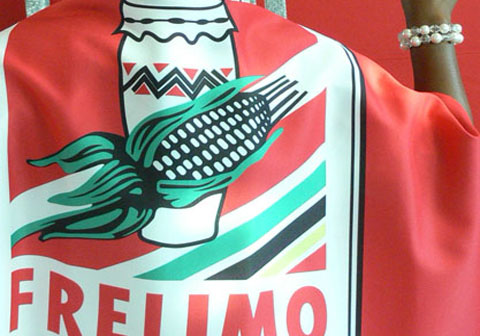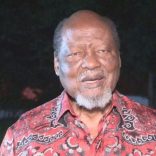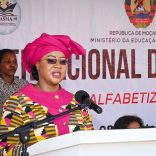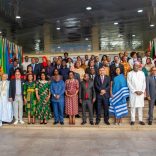Mozambique: Chapo calls for “speeches of love, not hatred”
Mozambique: Frelimo Political Commission favours “head of the list” elections – AIM

The Political Commission of Mozambique’s ruling Frelimo Party has quietly thrown its weight behind the call for the direct, rather than indirect, election of mayors, provincial governors and district administrators.
The latest statement from the Political Commission, issued after a meeting held last Wednesday, recommended that the Frelimo parliamentary group should “continue to work hard so that the consensus achieved on the decentralisation package becomes a reality, guaranteeing that the bodies are elected on the head of the list model”.
This was slipped into the middle of the statement alongside such matters as praise for the honorary doctorate that President Filipe Nyusi received in Switzerland in late February, and for the work done to relocate victims of the collapse of rubbish dump in the Maputo neighbourhood of Hulene on 19 February.
It was therefore not immediately obvious that this is, in fact, a significant change from the initial position on decentralisation expressed by Nyusi on 7 February. Then Nyusi had said that, in the discussions with the leader of the Renamo rebels, Afonso Dhlakama, it had been agreed that there would no longer be direct elections of mayors. Instead only the municipal assembly would be elected, and whichever party won a majority of votes in that election would appoint the mayor.
Similarly for provinces and districts. In the past provincial governors and district administrators were never elected. Now they would be – but only indirectly. The decentralisation package envisages the election of provincial and district assemblies, and the party with most votes appoints the governor or administrator. This system – election only of assemblies, with the mayors, governors and administrators appointed by political party – is what went into the draft constitutional amendments now before the Mozambican parliament, the Assembly of the Republic.
The amendments caused considerable outrage in civil society and in legal circles. A joint statement by some of the country’s most respected civil society bodies said the proposed abolition of the direct election of mayors meant scrapping a democratic right that had already been won.
The civil society bodies said “rights already won are not negotiable. Those are the rights that guarantee popular participation and involvement for the development of the country. Peace cannot be at any price”.
One of the most powerful voices raised against the proposal was that of a former judge on the Constitutional Council, Teodato Hunguana, who wrote that the proposal violates the fundamental principle contained in Article 2 of the Mozambican Constitution, namely that “Sovereignty resides in the people”. Instead, the draft constitutional amendments place that sovereignty in the hands of the political parties.
Hunguana noted that the right to suffrage is among the matters that the Constitution itself states cannot be amended. Article two, stating that sovereignty resides in the people, is so fundamental, he argued, that it cannot be altered, even by resort to a referendum. This difficulty is “insuperable”.
But Hunguana did see one way out. This would be to state quite explicitly that, whoever heads the list of a party’s candidates for the provincial, district or municipal assemblies would become the governor, administrator or mayor, if that party wins.
This would be a way of “safeguarding direct suffrage”, since when citizens voted for an assembly they need only look at who was heading the party list to know who they were choosing for governor, administrator or mayor. Although there would only be one ballot paper, the voters would be voting simultaneously for an assembly and for the governor, administrator or mayor.
Hunguana regarded this as quite different from allowing the winning party to choose whoever it liked as governor, administrator or mayor.
And it is Hunguana’s position that the Frelimo Political Commission has now adopted when it refers to “the head of the list model”.
Senior Constitutional expert warns against abolishing direct election of mayors
Does this put the Political Commission on a collision course with Nyusi and Dhlakama? Not necessarily: for Nyusi in his recent speeches has repeatedly said that his “consensus” with Dhlakama is only a framework, which can be improved by parliament.
As for Dhlakama, he has publicly stated that Renamo is in favour of the direct election of mayors, provincial governors, and district administrators, and claimed that the indirect election in the proposal was demanded by the government.
AIM knows, from several sources, that this is not true and that party appointment of mayors, governors and administrators was a Renamo demand. But since Dhlakama is on record as supporting the direct election of these senior officials, it would be difficult for the Renamo deputies to oppose the “head of the list system” during the forthcoming parliamentary debate.
Proposed constitutional changes give “limited powers” to provincial and district assemblies – CIP
Mozambique: Would constitutional changes represent democratic backsliding?












Leave a Reply
Be the First to Comment!
You must be logged in to post a comment.
You must be logged in to post a comment.